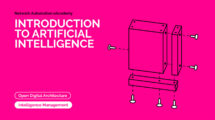- Promoting sustainable and eco-friendly computing
The challenge of computing and data fragmentation and its implications on sustainability are an ongoing concern for CIOs and research computing executives. Cloud offers a compelling solution. By leveraging cloud computing and long-term storage options, researchers can minimize fragmentation, promote collaboration, and enhance the efficiency of research procedures. This shift can lead to optimized energy usage, curtailed hardware needs, and increased sustainability by reducing carbon footprints. Furthermore, partnering with cloud providers like Oracle who are committed to eco-friendly practices indirectly boosts an institution’s contribution to global sustainability goals, while ensuring more sustainable and responsible computing on their campuses and institutions.
- Meeting high-performance demands quickly and affordably
The demand for instantaneous high-performance computing is surging among researchers. Emerging technologies like large language models for AI and simulations hold great promise but require massive compute power for extended periods of time. While modern on-premises infrastructures may have the necessary compute, they often struggle to handle sudden peaks in demand and extended-duration workloads, leading to researchers waiting in long queues to complete their research. The same is true of supercomputing centers. Cloud computing offers cloud bursting, which allows users to burst into a public cloud when additional resources are needed and manage peaks in demand in a flexible, cost-effective way. This means instant scalability and cost-effectiveness for high-performance computing needs, helping to ensure timely access to necessary research resources.
- Safeguarding compliance with regulatory mandates
Leading cloud service providers stay abreast of regulatory changes to allow their offerings to align with industry standards, particularly for highly regulated sectors such as healthcare, energy, and defense. These services include providing data security and encryption, data sovereignty and localization, compliance certification and automated compliance checks, and overall guidance and expertise. By integrating cloud services, research institutions can be more confident about compliance and avoid potential pitfalls, freeing resources to focus more on core research activities. While cloud is a shared-responsibility model, having an expert partner, like Oracle, is critical for researchers in today’s fast-paced, dynamic world of researching computing.
- Encouraging reproducibility and data sharing
The ability to reproduce experiments and results is a cornerstone of scientific research, and recent federal mandates have underscored the importance of reproducibility. Cloud services can help facilitate reproducibility by creating long-term data management and sharing offerings, automating workflows, metadata and data discovery, and providing automated documentation methodologies. Further, cloud can help advance FAIR principles by making it simpler to store data longer, incorporate digital persistent identifiers, publish research results, underlying data, and code, aligning with the requirements of many scientific journals today and helping to advance open science.
- Facilitating cross-disciplinary collaboration
In the face of today’s big and complex global challenges, researchers require a new approach to cross-disciplinary, innovative collaboration. Modern research is increasingly a team effort, often involving collaborators spread across multiple geographical locations, disciplines, and institutions. Cloud computing can provide technology tools that support such collaboration with shared workspaces, integrated and interoperable tools, data sharing, and scalability that enhance team collaboration and the quality and impact of research.
At Oracle for Research, we strive to be a trusted ally to the research community by actively listening, engaging, learning, and providing flexible, cost-effective, and innovative solutions. Hybrid cloud is one such solution that empowers institutions to adapt swiftly, cut costs, promote sustainability, and ultimately cultivate an environment of research excellence. We believe that understanding and serving the needs of researchers allows Oracle to help deliver on the promise of building a better, healthier world.
Are you a researcher looking to harness the power of OCI for your own research and analysis? Apply for a project award and let us help you make the discoveries that preserve our world.
Oracle for Research offers products, capabilities, and resources purpose-built for research to simplify the research process and accelerate discovery around humanity’s most urgent needs. Through our research-first, partner-centric approach, we make computing paradigms more powerful and user-friendly, data easy and accessible, and community resources invaluable and actionable. We help researchers in academic, commercial, and federal settings, across all research disciplines, explore novel ways to achieve ground-breaking results to make the world a better place.
Find Out More






